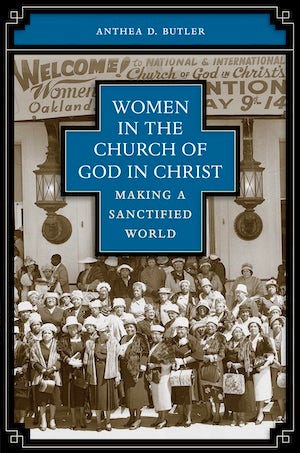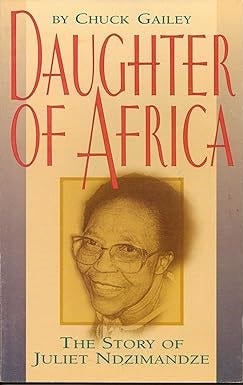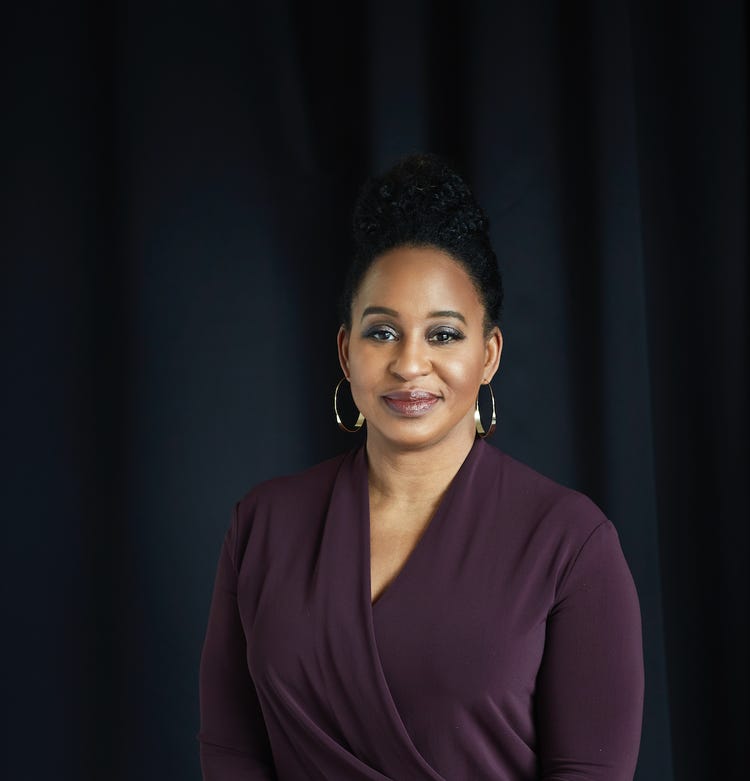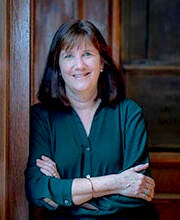FireFall Vol. 18: The Authority of Black Women to Preach the Gospel
Rev. Dr. Prathia Hall & the American Baptists; Mother Margie Key, COGIC Pastor in the 1970s; Rev. Juliet Kayise Ndzimandze: Eswatini Nazarene Evangelist; Jarena Lee as Protestant Icon
Welcome to FireFall! I hope you’ve engaged with the many resources by and about Black women leading in the church today and in church history, in the U.S., Africa, and other places around the world.
Black History Month is celebrated in the U.S., Canada, and Great Britain. The Jude 3 Project has shared a great post on early church north African martyrs St. Perpetua and St. Felicity, celebrating the ways that Black history is church history. This Black History Month, we’ve celebrated African American women as well as women of the African diaspora beyond America as well as African women. Visit FireFall archives for more by and about Black women leading in ministry.
The very purpose of FireFall is amplifying the voices of women in church leadership, so in addition to celebrating Black women in church history, at times this month I’ve also included women of the African diaspora who are leaders now, shaping history currently, one day at a time.
God, thank You for the opportunity to celebrate these women - some of whom received very little honor in their lifetimes. We honor them today. Amen.
“One of the Most Powerful Preachers in the Country”: Reflections on Rev. Dr. Prathia Hall by Rev. Dr. Chanta Barrett
This fantastic video from Rev. Dr. Chanta Barrett celebrates the ministry of civil rights activist Rev. Dr. Prathia Hall, one of the first African American women ordained by the American Baptist Association.
You can read some of Rev. Dr. Hall’s work in Beyond Eden: The Collected Sermons and Essays of Prathia Hall.
Mother Margie Key, COGIC Pastor of Rhode Island
The predominantly African American Church of God in Christ (“COGIC”), a Pentecostal denomination, celebrates the contributions of women who lead as evangelists and preachers. Like some other denominations in the U.S. in the early twentieth century, its early history includes women actively participating in ministry or planting congregations that, once established, would later have men appointed as pastors. (This also happened in denominations like The Pilgrim Holiness Church.) For more on women and the history of COGIC, check out the book Women in the Church of God in Christ: Making a Sanctified World by Anthea D. Butler. Generally now, womens’ leadership in COGIC falls within certain roles. The “Mothers” of COGIC may engage in ministerial work within the community or preach as evangelists, but typically they aren’t pastors or bishops.
So I was surprised to find photos from 1979 of a woman who was the pastor of a COGIC congregation in Rhode Island and who preached on Rhode Island radio. Her name was Mother Margie Key; the Library of Congress also has audio files of interviews with her from that same year.
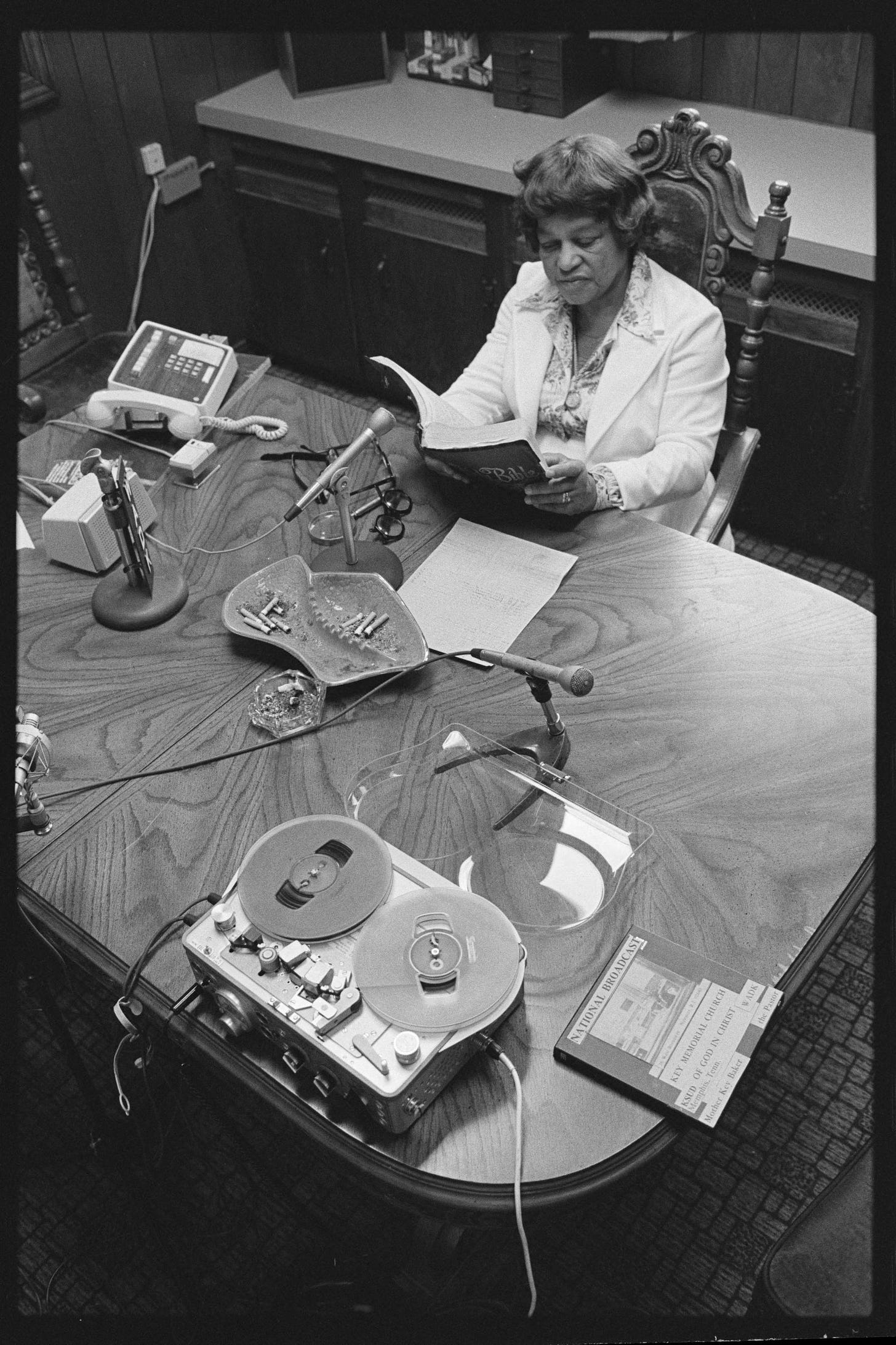
Thanks to the online archives, you can listen to the late Mother Key describe how she came to pastor a COGIC church. I’ve transcribed part of a 1979 interview with Mother Margie Key below. Born in Arkansas, Mother Margie Key moved to Brooklyn as child. While her husband was a pastor, she noted, “I was an evangelist, I traveled all over,” which included the U.S. and Canada. Later, she supervised a couple of COGIC regional women’s departments.
Then, she explains to the interviewer, “I was appointed to this church; my husband died in 1966, the General Assembly appointed me because my husband and myself worked this church out here because there was no Pentecostal church out here. They appointed me–our churches, we don’t have many women pastors. But if you have worked the church out yourself and established it–like my husband and I did here–if the people want you, they will appoint you over it. And they didn’t want anyone else. So…the presiding bishop…agreed that I take the church. This is why I’m here.”
Mother Key continued, “of course it was against my will from the beginning. I served four years unwillingly. I knew it was God’s will, but I never wanted to be over the church…because before I moved here, I was traveling and conducting revival. The Lord spoke to me and told me to come to Newport. I spoke to my husband about it. Of course he being a pastor, he was unwilling to come. But I prayed. I never bothered my husband…but I would tell God about it. In ’55, he decided–which he thought it was his own accord, but I was praying–he decided he would come to Rhode Island from the state of New York. I was very happy. But we stopped in Providence, he wouldn’t come to Newport. He opened a church in Providence, but God didn’t allow us to be blessed there. The church didn’t grow. I kept praying and inquiring of the Lord what we should do. And in praying, I would come down here and walk the street and pray and go back. Finally, I gave it up, because he was the pastor.”
Then, Mother Key recounted, something happened.
“One day I went upstairs and I said to the Lord, ‘Lord whatever you want me to do, I will do it.’ And I laid down on the bed and I wasn’t asleep, but I was in a hearse…going to a cemetery–and I sat up and I shook my head and said, ‘now I know I’m not asleep, what is this Lord?’ And I sat there a while and I began to lay down again and I was in this hearse again on my way to the cemetery…I sat up the second time, I said, ‘Lord I don’t understand this.’ It was because I had given up Newport. And I sat there and I began to pray. And after praying for a few minutes I said I’m going to lay down and rest and as I began to lay back in the bed I was in this hearse again and I approached the cemetery, and it was a big tombstone covered with a black covering, and that veil covering it parted and my name was on it. And I got up and I began to ask the Lord, ‘now Lord, what does this mean?’ And the voice of the Lord spoke to me and said, ‘Newport.’”
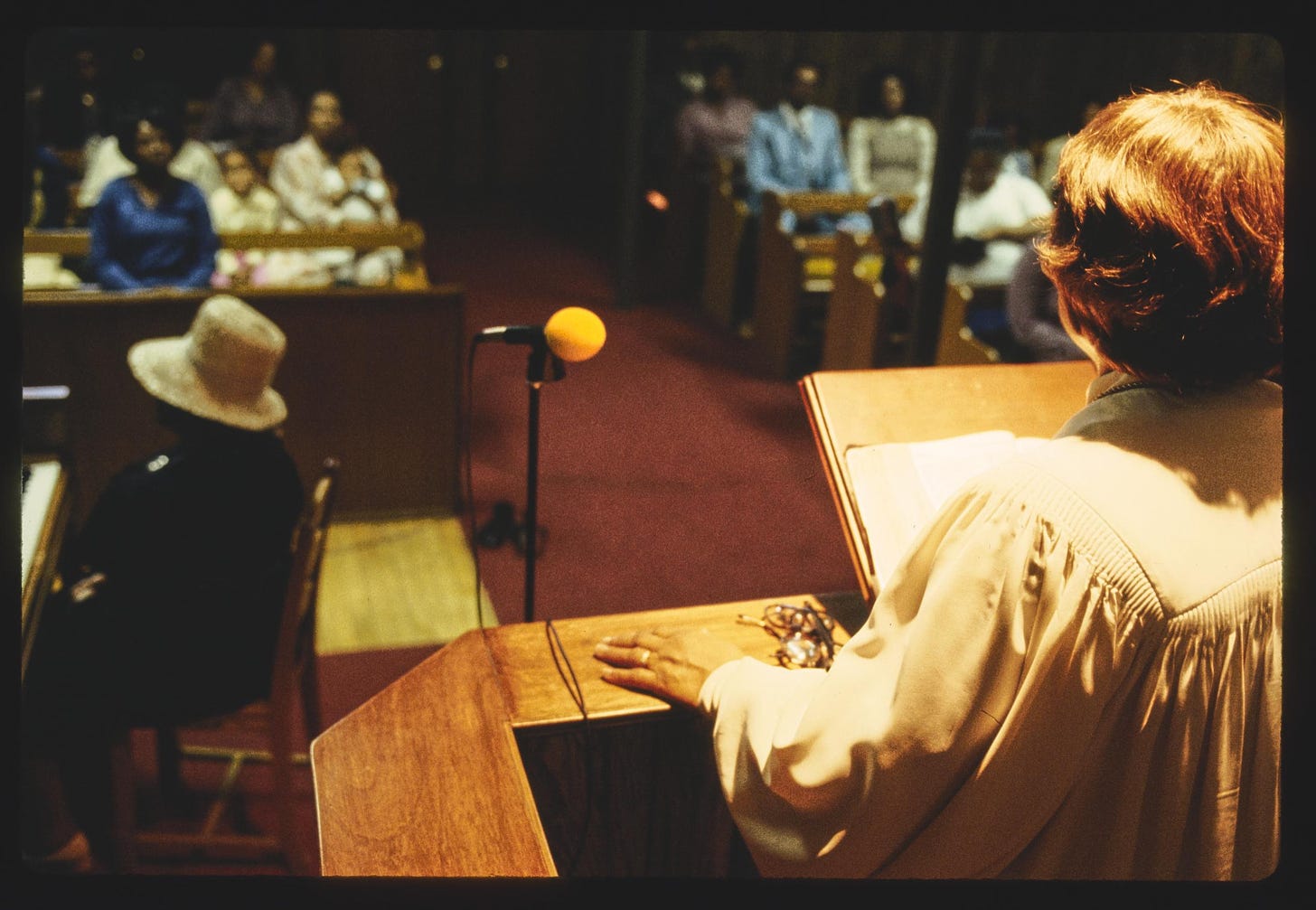
Mother Key went on to describe how, “I didn’t say anything to my husband until the next day. And I spoke to him and said, ‘I have to go to Newport.’ And I explained to him what God had spoken to me. He said, ‘are you sure it was God?’ I said, ‘I’m sure,’ and I said, ‘I’m sure if I don’t, it means my death,’ I understood that. He said, ‘go.’ He never hindered me from doing anything when he knew it was God, because he was a man of God, he was a minister himself.”
After that, the Keys established a congregation in Newport in the midst of multiple site moves. Mother Key’s husband was invested and supportive throughout the remainder of his life.
“I came down...we had been looking for a place. That day I found a storefront for forty dollars a month. [My husband] came back the next day with me and he put a deposit on it. After renting the place, we found another building there. Sawdust was in it. He took the sawdust out, renovated the place, and we rented it for a period of time. We moved further down on west Broadway and rented another place. Finally after renting this place, my husband died…then, in April of ’67, a fire broke out. This fire spread to all of the buildings about four o’ clock one afternoon. The members of the church were worried and they kept calling me…I told God, ‘don’t let the fire destroy the part where the church was.’ The voice of the Lord spoke to me and told me he wouldn’t destroy it. The blaze was from four o’clock until twelve o’clock that night. And it burned up to the building where our church was. It burnt the whole two floors over the building…not even water went downstairs in the church. They didn’t have to break any of the doors. Everybody could see the frame over the top clear from the corner up but only our one particular spot was saved. The furniture in there was not even wet. But God spared us.”
After another relocation and some distressing vandalism on a church property, Mother Key commented, “I had been praying. God spoke to me and said, ‘I want you to move the church back to West Broadway’…after praying a year, the church [on High Street] came up for sale. But I knew God had spoken to me. He said, ‘I’m not concerned about buildings, I’m concerned about people.’ That was the purpose of Jesus coming into the world.”
See Anthea D. Butler’s book for more on women in COGIC.
If you’re interested in more Mother Margie Key archives, visit the Library of Congress online for more photos, further audio interview, audio files of an entire church service with Mother Key’s sermon, and an audio file of a sermon Mother Key preached on the radio.
Rev. Juliet Kayise Ndzimandze: Church of the Nazarene Evangelist, Pastor
In 1965, Rev. Juliet Kayise Ndzimandze (1929-1996) was “the first Nazarene woman in Eswatini to be ordained…and the first Swazi woman to qualify as a marriage officer.” (DACB) Dr. Hugh Benner presided over her ordination. She taught in a Bible college for twenty years and pastored a church for five years. After God called her to evangelism one night late in a college chapel, Rev. Ndzimandze, “became the first full-time woman evangelist in the Africa Nazarene Church” in 1971 and became the first African woman on the Africa Nazarene Publication Board. Multiple biography entries in DACB mention the impact of her preaching and evangelism ministry on other leaders. (She also had to leave Eswatini briefly to avoid the increasingly aggressive advances of the then-King.)
Her biography entry notes about her childhood, “Although it was highly unusual in those days for a Swazi man to be seen holding an infant, Juliet’s father [a pastor] often carried her in his arms. The congregation began calling her Intombi Kayise (Daughter of her Father) and the shortened ‘Kayise’ stayed with her.” One day when she was about six years old at the parsonage alone, a mentally ill man approached. “Little Juliet felt that she had to do something to help this poor man. She could not read but she could sing so she and her little sister sang to the man, ‘I Will Make the Darkness Light Before You.’ As they continued to sing it over and over the jerking of the man’s body diminished, his mutterings quieted some, his rolling eyes finally focused and the man regained his senses.”
According to her father’s biography, when he was very ill near the end of his life, “With great emotion he asked his children, ‘Who will carry this book?’ The elder sons were quiet but his daughter, Juliet, although still young at the time, took the Bible and replied, ‘I will carry the book.’”
When she was in high school, Kayise wrestled with God’s calling on her life, initially resisting it; she had a speech impediment. When she finished Bible college, the district board thought she was too young to enter pastoral ministry, so she worked at the Bible college, then taught there; during this time, her speech improved. She taught there for twenty years and also pastored a church.
At first, she was reluctant to make a change from teaching to answer God’s call to evangelism, but, “while the students were speaking a seemingly audible voice said, ‘God wants you.’ All of the excuses that she presented did not help and finally she responded and went forward to offer herself.”
Then, in 1978 (around the time Mother Key was preaching in Rhode Island) Rev. Ndzimandze “was asked to hold revivals in the Nazarene schools in Eswatini. She would usually visit two schools a month giving one week to each. Since there were forty schools and more than 12,000 students, it was a huge task. There would be as many as four services per day. Students were attentive and came to the altar and wept. There were great visitations of the Holy Spirit.”
Rev. Ndzimandze was appointed evangelist for all Africa in 1984. “Pauline Kamanga in Malawi said, ‘She preached holiness and how to be filled with the Holy Spirit. She gave us a way to understand holiness.’
As an evangelist, she traveled to South Africa, Mozambique, Zimbabwe, Zambia, Malawi, Kenya, the United States, the British Isles, and Germany.
For more of Rev. Ndzimandze’s story, read here.
Listen: Jarena Lee as Protestant Icon - A Conversation with Dr. Nyasha Junior and Dr. Catherine Brekus
This engaging podcast episode from Harvard Divinity School aired in the fall of 2020, so if you missed it and you’re wondering how it wasn’t on your radar - well, it was 2020. The full transcript is available here. (Content note: discussion of attempted self-harm in context of historical biography.)
Dr. Nyasha Junior is associate professor in the Department for the Study of Religion at the University of Toronto, and Dr. Catherine Brekus is Charles Warren Professor of the History of Religion in America at Harvard Divinity School.
In this conversation, they discuss Jarena Lee’s life, her posthumous ordination, spiritual authority to preach, and the AME Church.
Listen here:
Thank you for subscribing to FireFall, a free weekly ecumenical newsletter amplifying the voices of women leading in pastoral ministry and theological education.
FireFall was launched in Fall 2023 by Elizabeth Glass Turner, who was tired of wading through mounds of complementarian search results every time she tried to look up something about women in ministry, tired of resources getting lost in denominational silos, tired of academic paywalls and pro-open access material, and tired of syllabi that consistently omit resources by and about women.
Please click links, add referenced books to wishlists, play videos and podcasts - your clicks, purchases, plays, and listens help boost work by and about women in the church.
FireFall is not sponsored by an organization or entity, it’s a labor of love, so please be kind.




